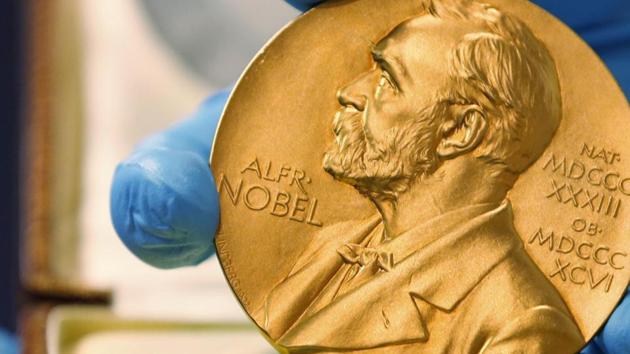Nobel Prize for Literature controversies: From unknown winners to Sartre’s refusal
The Swedish Academy will announce the Nobel Prize for Literature on Thursday, October 5.
Critics speculate the Swedish Academy might not opt for a controversial choice this time, after singer-songwriter Bob Dylan was awarded the Nobel literature prize last year.

The 18-member Academy will announce the Nobel Prize for Literature on Thursday, the academy said on its website.
Not only was Dylan the first singer-songwriter to win the prestigious award, he was silent for weeks after his victory and snubbed the ceremony in Stockholm in December. The unconventional choice sparked months of debates, with critics analysing if Dylan was the rightful recipient of the coveted award or if his songs could be construed as literature at all.
Here’s a look at other controversies over the Nobel Prize for Literature:
First to refuse the Nobel
The 1964 laureate French philosopher Jean-Paul Sartre, whose political philosophy was partly based on the criticism of institutions, was the first writer to refuse the prize. He wrote that he “always declined official honours”.
A hand of the Swedish Academy?
Some winners of the Nobel Prize for Literature raised eyebrows because they were members of the Nobel Academy that chooses the laureates. They include the little-known Swedish joint-winners Eyvind Johnson and Harry Martinson, who in 1974 beat out Graham Greene, Saul Bellow and Vladimir Nabokov.
Contested opinion
Dario Fo, the Italian playwright and performer who won the prize in 1997, was one of the Nobel laureates who particularly divided opinion.
While the academy lauded Fo for emulating the spirit of the ‘jesters of Middle Ages’, but a lot of people, including other writers could not stomach the idea that the prize could go to some one whose work included buffoonery and farce.
Most notably, Fo’s prize riled Catholic priests who were appalled at his interpretation of the faith. The Vatican newspaper L’Osservatore Romano wrote, “Giving the prize to someone who is also the author of questionable works is beyond imagination,” the New York Times reported.
Still, the author of the ‘Accidental Death of an Anarchist’ remains one of the most popular contemporary playwrights. His work has been translated into 80 languages and performed all across the world.
Political meddling?
Russian novelist and author of Doctor Zhivago Boris Pasternak was awarded the Nobel in 1958 but he was forced by the Soviet government to turn it down. Doctor Zhivago, which covers the period between the 1905 Russian Revolution and World War 2, was not allowed to be published in the Soviet Union and was eventually smuggled out.
Pasternak’s descendants re-accepted his award in 1988.
Similarly, the 1970 Nobel Prize for Literature was given to Soviet dissident Aleksandr Solzhenitsyn “for the ethical force with which he has pursued the indispensable traditions of Russian literature” during the Cold War. Even though the Academy maintains that its decisions are based on an individual’s work, the Soviet Union denounced the prize.
Solzhenitsyn did not receive the award that year because he was afraid he wouldn’t be allowed to enter Soviet Union. The outspoken critic who was accused of anti-Soviet propaganda was expelled from the country in 1974, allowing him to accept the award.
Little-known winners
Many were baffled when the Swedish Academy announced Austrian writer Elfriede Jelinek as the winner of the 2004 Nobel Prize for Literature. The feminist, political writer was mostly unknown to the non-German speaking world.
She was given the Nobel for her “musical flow of voices and counter-voices in novels and plays that, with extraordinary linguistic zeal, reveal the absurdity of society’s clichés and their subjugating power”.
A member Knut Ahnlund left the Academy in protest in 2005, describing Jelinek’s writing as “whining, unenjoyable public pornography”. He also said the award had “confused the general view of literature as an art”.
(With agency inputs)



